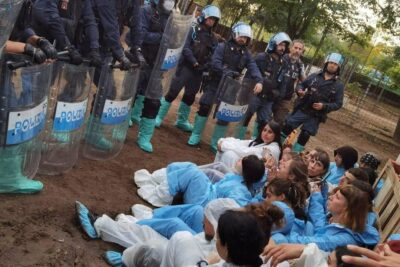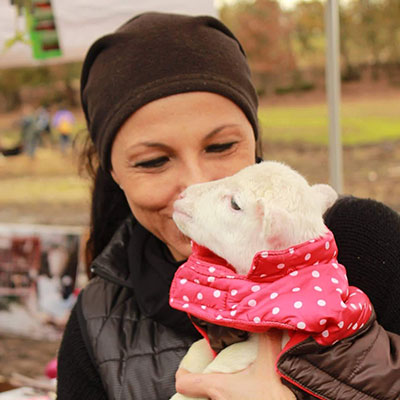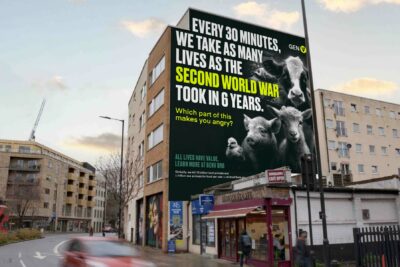by Steph Rivetti, Animal Rights Activist
The attack on the permanent shelter, the violence against the activists, and the forced killing of nine pigs rescued by the Sanctuary Progetto Cuori Liberi (Free Hearts Project) may not be an isolated incident. And what happened should invite our Movement to deep reflection.
The Background
On 5 September, the most terrible announcement was made on the social channels of the sanctuary: “In the Sanctuary Progetto Cuori Liberi, the plague has arrived. Two wonderful pigs died, their organs taken away for testing. The verdict was terrifying. African Swine Fever was found. It should never have happened. Today the order was served ordering the slaughter of all the rescued pigs present.”
African Swine Fever (ASF) is a highly contagious disease in pigs, with a high mortality rate. There is no vaccine and no cure. It does not affect people.
Legal teams were immediately activated and they issued an appeal against the culling to the Regional Administrative Court. The court allowed the appeal and listed the hearing for 5 October 2023 – but it did not suspend the killing order. The individuals liberated by and protected at the sanctuary were still at risk. At any time, the health authorities could have followed up on the order to have them killed.
Defense of the Sanctuary
Gradually, around the Sanctuary Progetto Cuori Liberi the embrace – both physical and virtual – of Italian and international activists tightened. For days, they stood by, with an active outbreak inside a permanent shelter. However, all the necessary biosecurity rules had been adopted to contain the infection and prevent it from spreading.
In the meantime, the authorities were already carrying out gas-chamber slaughter on local farms in accordance with the ‘guidelines’ for the eradication of ASF. Lombardy, the region in northern Italy where the sanctuary is located, raises more than 50 percent of Italian pigs – four and a half million individuals. These are the ones who end up on tables all over the world in the form of hams and salami, the famous ‘Made in Italy’ products. This sector alone exports 197,759 tons of products for a turnover of 1,836 million euro. To understand the economic (and political, let’s be clear) weight of this industry, it is enough to know that in 2021 the value of production was 8.4 billion euro (out of the total 30bn of the meat from the farming and slaughtering industry in Italy). Let us keep these figures in mind, because they will serve us well for some reflections later on.
Watch the drone footage captured by Essere Animali as the authorities slaughtered thousands of animals.
On Friday, September 15th, health authorities and law enforcement officers made a first attempt to gain access to the private property (because it is a private house) home of the Sanctuary Progetto Cuori Liberi. An extraordinary, powerful, wonderful, non-violent human barrier stood between the police, the veterinary enforcers, and the still-living pigs. A shield of hearts pulsating respect, compassion, inclusion, and protection for every form of life, was erected between the rescued animals unaware of the death sentence hanging over their heads, and dozens of representatives of the authorities. The latter were armed with orders to defend a sector based on the commodification of bodies, objectification of souls, and commercialisation of breaths.
“There are no conditions to proceed,” came the verdict that also allowed our hearts to continue beating for a while. But there was no reprieve, no guarantee that they would allow the surviving pigs to stay at home and play it out, or be accompanied beyond with respect and dignity.
The Attack on the Sanctuary
At first light on Wednesday 20 September they arrived in force. Dozens of police trucks, officers in riot gear with shields, reinforced gloves, helmets and batons. They stood against forty or so non-violent, defenseless… and ultimately powerless activists. The violence they inflicted was documented by mobile phones, cameras, and drones. It is undeniable and shameful. The execution against the pigs was carried out.
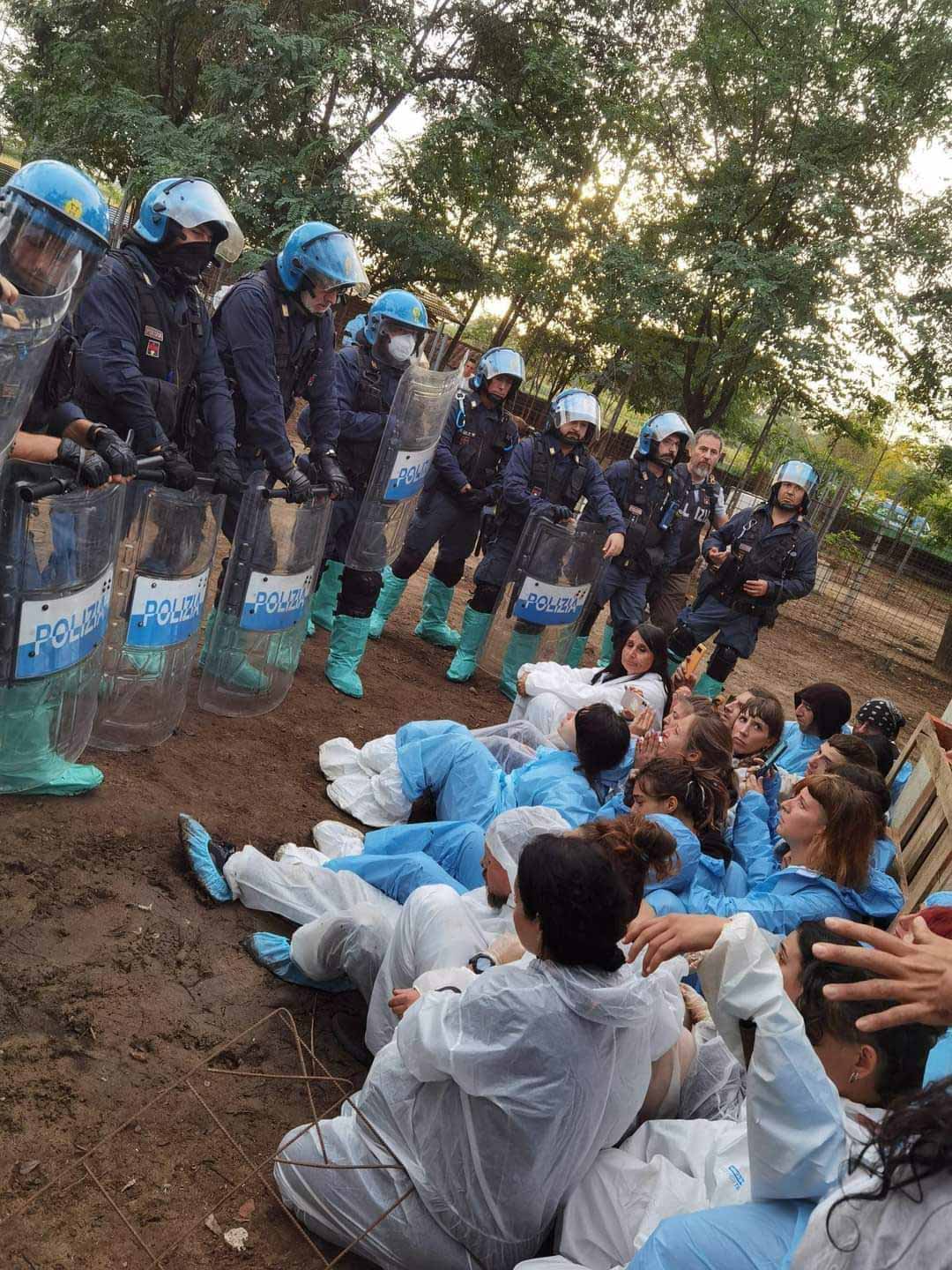
“We are following orders.” This is the ‘justification’ that discharges the conscience from any responsibility for acts of violence against defenseless people and animals, and it evokes very dark periods of contemporary history indeed. And it admits of no forgiveness.
See what happened that day here:
Consequences and Implications for the Movement
What happened at the Sanctuary Progetto Cuori Liberi set a terrible, dangerous, chilling precedent. The raid by the police and public vets was shocking in itself and it has far more serious implications and risks, this not being a unique or exceptional case.
As an animal rights activist for decades, I consider it crucial for the entire movement to stop and reflect. With the institutional attack on a permanent shelter, we have learnt – to the sound of batons, kicks, and violent scenes – that no animal is safe, especially if they are vulnerable to industry disease. It does not matter that they are not intended for food production or that they do not travel outside the sanctuary for any reason, or in other words … if they are not ‘fed’ into the atrocious chain that turns intelligent, sentient individuals into mere products, or if they are separated and removed from the rest of the world.
What happened has shown us, should we need it, that non-violence, respect for life, and compassion, are seen as a menace to be repressed and filed away, like the worst criminals. It has made us realize, without any risk of misinterpretation, that in law, mistreating and harming animals is only a felony if the harming is deemed unnecessary. This hides a great deception – that it is necessary to slaughter animals for food – and should be changed to ‘it is not a felony to harm and kill animals if it is in accordance with the orders of the industrial agriculture lobbies and the majority of consumers’.
Among the morning’s many violent episodes, one of the most notable was seeing the owners of the private property on which the sanctuary stands, who have lived there for years, dragged out of their own home to allow the ‘institutions’ to carry out the death sentence on their animal companions. The real slap in the face of this whole affair is this: NO ONE is safe. There are no sanctuaries, no permanent shelters, no private homes that can hold out against such actions. Faced with the economic interests of the ‘pig sector’ (but it could also happen to the poultry sector, the sheep and goat sector, the cow sector, even our dogs, cats, rabbits or horses, should they represent a risk for the economic interests of an ‘industrial’ sector!) not only does the right to human property crumble, but so does any basis of protecting the vulnerable, whether they are people or animals.
Sanctuaries Are Not Safe
Why was this possible? As always, because there is a regulatory vacuum in Italy regarding the so-called ‘sanctuaries’ or ‘permanent shelters’ that no one seems to have any interest in filling even though it is desperately needed to guarantee real protection for the liberated subjects. And this vacuum exists simply because the real stakeholders here, i.e. the animals first and foremost, and secondly the activists, are not economic stakeholders. So, basically, politics does not care about them (except in election campaigns to scrape together a few likes and votes).
The Law in Europe
Three legislative references can give us an indication of the current situation:
- For the Italian Ministry of Health: anyone who keeps pigs with production orientation and held exclusively for purposes other than agriculture uses, breeding, marketing and food production, is always required to ensure their identification and traceability in accordance with Regulation (EU) 2016/429. Therefore, every pig in the country, even if they sleep on our sofa, must be registered in the national database of ‘productive’ animals and have a ‘productive’ classification.
- Also in accordance with European Regulation 2016/429, places where rescued pigs are kept are to all intents and purposes ‘establishments’ (in the same way as farms) and must be registered in the national database, have an identification code and be subject to all applicable hygiene and biosecurity regulations.
- If the situation so requires, the competent authority may order the preventive killing of certain animals where a category A disease (i.e. a disease, such as African Swine Fever, which does not normally occur in the European Union and which requires immediate eradication measures as soon as it is detected) is suspected.
The law does not take into account the emotional bond that can be established with animals of species other than dogs and cats. But even in this case, should dogs and cats be vehicles of a category A disease, immediate eradication measures would still apply. The law therefore does not provide for any alternatives to ‘culling and disposal’- both terrible terms that define a mechanized process of killing and incineration, in the same way as they talk about industrial waste.
A Radical Perception Shift
It is a truly revolutionary and disruptive idea to see animals not as products, or suppliers of products, or producers of profit, but simply as individuals in their own right. It is radical to see them as beings with their own needs and rights, first and foremost the right to life and the protection of that life. And it is an equally revolutionary idea to guarantee to those citizens, active members of a civilized and democratic country, who have allowed animal individuals to emerge from market dynamics, the right to protect those lives, the right to cherish them and to ensure that their personal characteristics are REALLY respected, from beginning to end.
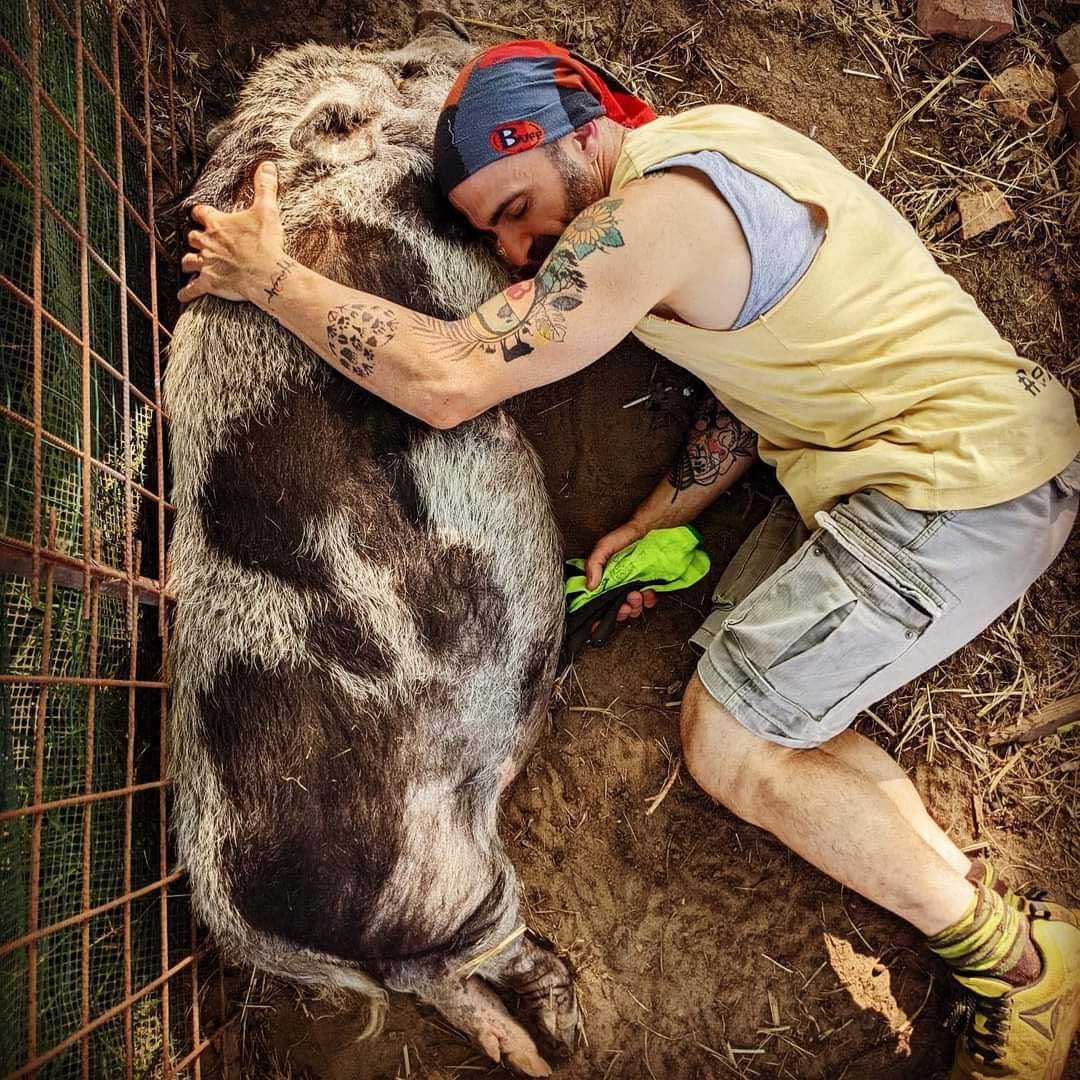
Change Is Needed
How can we ensure that the current legislation really adapts to the changed feeling (at least of a part of the citizenry) towards animals of all species? What can we do to make sure that the legislation is updated to reflect the evolving perception of animals, and to include and protect that part of active citizenship that does not see animal individuals as products on which to profit?
The Movement for the Rights of Non-Human Animals needs to field a strong, united, cohesive lobbying action that can go on to define incontrovertible parameters for the protection and preservation of those animal individuals who we manage to release from the dynamics of the supply chain. The moment an individual animal crosses the threshold of a sanctuary or permanent shelter, and that permanent shelter adopts all the necessary measures so that the host animals are monitored and protected in terms of health, the requirements on the millions and millions of invisible subjectivities destined for food production should fall away.
This is the first and most urgent battle: to get a decree passed that sets out, without a shadow of doubt, the duties but above all the rights of permanent shelters, including the inviolable right to guarantee – without outside interference – veterinary care and a good and dignified death to the animal subjects they host. In addition to the possibility of less humiliating and invasive identification methods than ear tags, we need a derogation from extraordinary displacement procedures, for example to be able to drive them to specialized veterinary clinics. The list of what we need at this level would be long.
A second, fundamental step is to rediscover the unity that could truly transform the Non-Human Animal Rights Movement into a political and cultural power without equal. After all, at least in theory, our goal is one: to guarantee non-human animals the right to life, the absence of pain, the satisfaction of their ethological needs, and self-determination, as well as to promote a (human) lifestyle based on respect and compassion, starting with (but not limited to) what we choose to eat.
These Pigs Were Killed to Protect Profits
Because the heart of the matter is here. The mass-killing of wild and farmed pigs (regardless of them being healthy or affected by ASF), in Lombardy as elsewhere, is carried out solely to protect a supply chain that every year artificially inseminates, mutilates, fattens, kills, dismembers, processes and markets millions and millions of bodies of sentient and intelligent individuals. The nine pigs not intended for food production who lived in the permanent shelter of Progetto Cuori Liberi were killed as a result of a violent and unjustified action designed to support consumers who wish to continue eating their ham – which is the thigh of an animal who was born, raised and killed, only to be dismembered and turned into food.
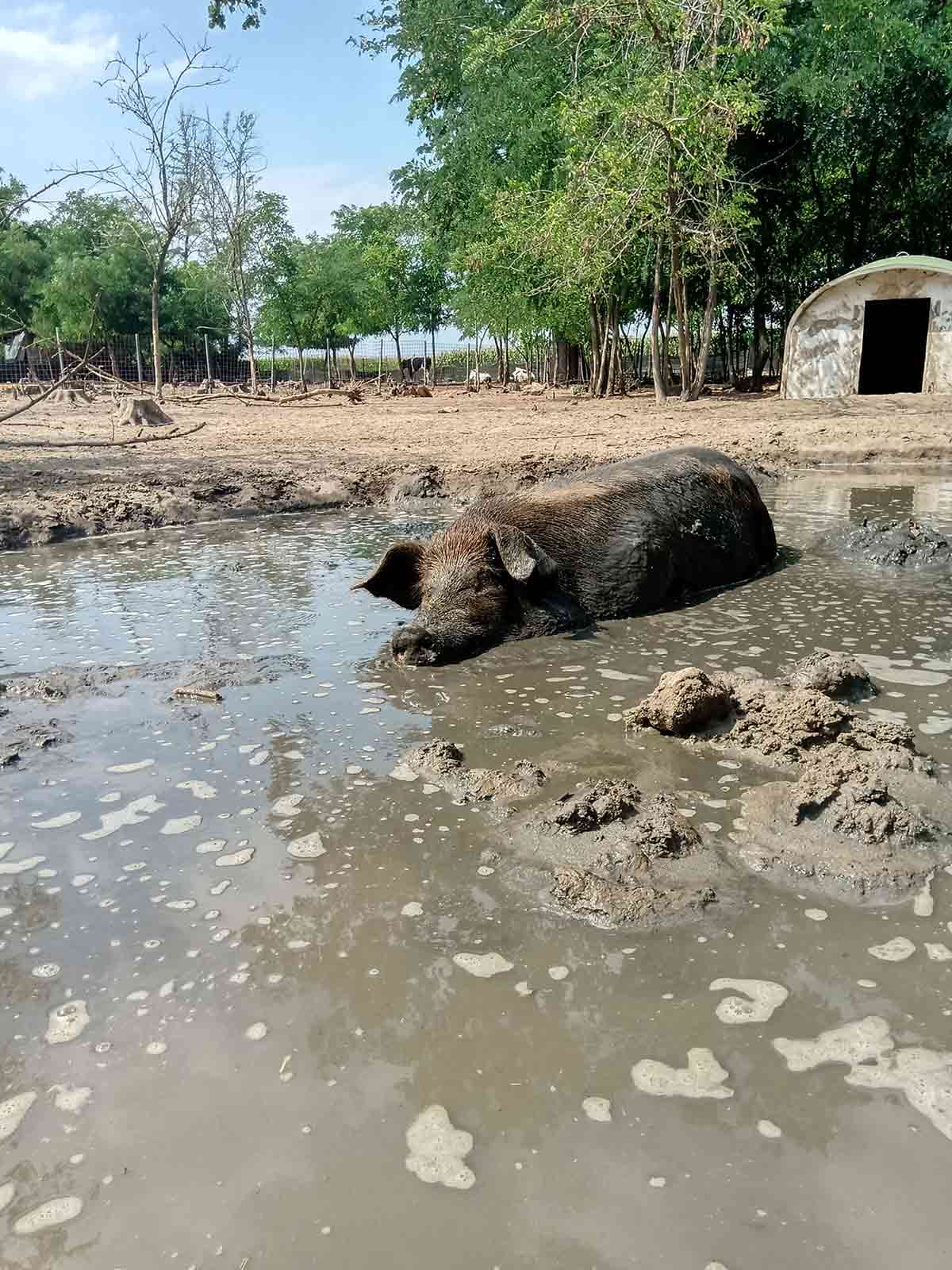
We Can Be The Difference
To be outraged at the violent repression of feelings such as compassion and respect that took place on 20th September at the Sanctuary of the Progetto Cuori Liberi is not enough. The greatest political power we have (as demonstrated by the billions invested by the food industry to turn food into a status symbol to be coveted) is the power we exercise every time we go shopping and choose what to put on our plates. Or, rather, who to put on our plates.
At the moment, politics is being maneuvered by the huge economic interests of a violent industry. Mass media are inevitably subservient to the immense advertising budgets of that same violent industry, and social networks depend on algorithms that will always show us the content we like best within circles of like-minded people. So, how can we broaden our field of influence and reach that part of the population to whom our message of compassion, respect, inclusion, and anti-speciesism could potentially resonate?
After years of battles, of campaigns, of street demonstrations, of more or less peaceful dialogues and confrontations, I can say that I no longer have an answer. And perhaps individually we will never find it. But together, united, and above all by putting them, the animal individuals, at the center of our action, we can be disruptive.
